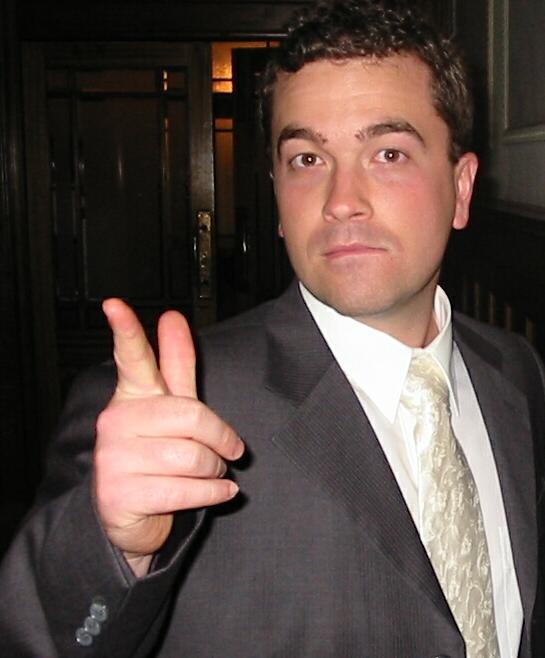The MTC third year exams which finished last week were really hard work. I thought that nothing could be harder than second year, but I was wrong. One week later and only now am I feeling like I haven’t been hit by a truck. Here’s my take on each of the exams…
Old Testament 3 (theology)
This was our opening exam and the one which took the most preparation. The paper consisted of three compulsory questions drawn from a pool of 16 which were known to all candidates, plus one unseen question which we could pick from a number of options. Sound complicated? Yeah, not the most straightforward affair. Even though we knew the questions they were really hard and took a bit of research. This meant that while we actually learnt a lot of OT Theology, our preparation for the rest of the exams suffered. The lecturer who set the paper’s format but was on sabbatical during second semester so we couldn’t go and exact our revenge. I’m not sure how we would have done this, but some disciplinary action was necessary.
This paper receives a C.
Old Testament 3 (exegesis)
No real surprises here, but the texts which were set were only parts of larger compositional units. This made it hard to talk about structure…“This text forms ¾ of a chiasm.” Awkward.
I give this paper a B+
New Testament 3 (theology)
Again no real surprises. The questions followed the syllabus fairly closely, to the point where some questions allowed for exact regurgitations of particular set readings. The paper could have been improved by adding another question to the Pauline theology section (only three options to choose from), but the questions here were interesting enough, although predictable:
How useful is it to search for a ‘centre’ in Paul’s theology?
and
Asses the view that Paul was ‘called’ and not ‘converted’ on the Damascus road.
The New Perspective question felt a little impossible:
What is the essence of the ‘New Perspective’ understanding of Pauline theology?
This is like asking “what is the essence of being Australian” or “what is the essence of being male”. You know it when you see it (although in Newtown…), but it’s many things nonetheless.
This paper receives a B+
New Testament 3 (exegesis)
This year’s NT3 exams were both two hours in length, which I felt made the whole experience a little easier. The one common complaint was that the texts in this year’s exegetical paper were a little long, so after translation there wasn’t enough time to make adequate comments. But, the new format included a new section where no translation was required but where theological comment was asked for on a pair of related verses. Interesting.
This paper deserves an A-.
Doctrine 3
This was the paper I was least prepared for. Thankfully it was devoid of Robert Doyle’s mega-long, quotation-based questions. They were shorter and to the point, which was nice. Most people found four questions which they felt comfortable answering, but it seems that they were the same four questions for everybody. I even answered two on eschatology, which was my least prepared area in my least prepared subject.
I give Doctrine 3 a B+
Ethics 3
I worked really hard for this one. Ethics was something I struggled with all year, but I was determined to get it. I reckon it finally came to me in the days before, which is a good thing. The paper was the best of the lot; questions were stretching but accurately reflected the content of the course and enabled us to apply the skills which the course attempted to teach us. Some of the wording was interesting and betrayed certain presuppositions:
Are Christian ethics relevant to people to people who are not Christians? Illustrate your answer with reference to Old Testament Israel.
Can we call OT Israel “Christian”? Hmmm…
“Unplanned motherhood represents a threat so great to modern women that it is perceived as an equivalent to a ‘death of self’.” In a society where abortion is legal, what can Christians do to undermine its ‘attraction’?
That the Christian would want to undermine abortion assumes a certain stance, so this question can be seen to jump down the path of ethical logic a little too quickly. Nonetheless, the question of the application of a certain moral position is an interesting and important one, and it’s refreshing to break out of first order questions and to get to the pointy issue of acting upon moral theory.
Speaking of which, the last question was a real cracker and was compulsory for all taking the exam:
A cohabiting couple, who are not Christians, come to you in some distress. The woman is not yet pregnant yet yearns to have a child. The man professes to love the woman, but insists that he will leave her if she falls pregnant. They agree to several meetings with you.
What Christian moral arguments about this situation will you seek to outline and persuade the couple of, and what suggestions, advice and/or instructions about what to do will you offer?
Wow. That’s what the whole course is getting at; enabling us to actually be effective in that situation.
Well done Andrew Cameron. You get an A+.
Saturday, December 02, 2006
Subscribe to:
Post Comments (Atom)

4 comments:
That's a wonderful final ethics question! I think getting over 70% on that question should be compulsory for all candidates - might be a better test than the recent questionaire...
Ha Ha... yeah, would much rather be ministered to by someone who could handle that ethics question rather than someone who got the questionaire 'right'.
Hi Marty,
How'd the results go?
Roger
The results were fine Roger...thanks for asking! Overall my best subject was NT, helped no doubt by a very satisfying essay mark from earlier in the year. Hope that you too are well.
Post a Comment